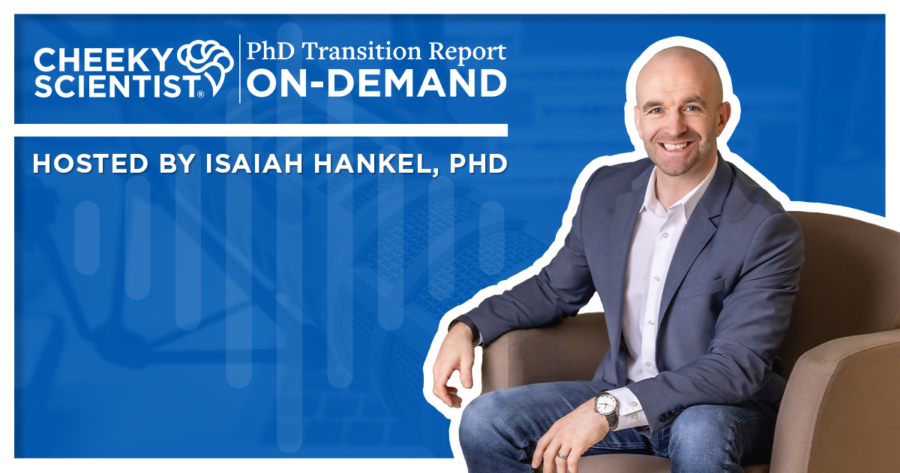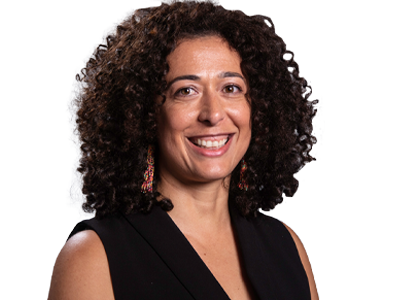Hosted By

Chief Executive Officer Cheeky Scientist

Join Isaiah for a PhD-specific look at the thank-you email and discussion about how it can help clinch your next interview
Here’s a quick rundown on this week’s episode:
- First, Isaiah shares one of the best ways to stand above other candidates after your final interview at any industry company
- Next, he covers a few ground rules or creating the best possible thank-you email if you’re a PhD
- Finally, Isaiah closes with a reminder about the call to action your thank-you email needs in order to be effective
From This Week’s Show…
The Percentage Of Job Seekers Who Don’t Send Thank-You Emails After An Interview Is Staggering
If you think your industry interview is over once you walk out the door, think again.
According to TopResume, as many as 1 in 5 recruiters or hiring managers will dismiss a PhD candidate in industry that didn’t send a thank-you email.
Careerbuilder conducted a survey that revealed 57% of job seekers don’t send follow-up messages.
This means that sending a sincere thank-you email can help push you ahead of more than half of your competition.
So, what should be included in a thank-you email? Let’s go over the critical elements that make up a first-class thank-you message.
First, always send the thank-you email within 24 hours of your interview.
It’s a great way to keep your name top-of-mind when it comes time to make a hiring decision – even if (or especially if!) you think it didn’t go so great.
In fact, in the same studies I just mentioned, a whopping 80% of recruiters report that a follow-up email helped them make their final hiring decision.
In other words, the thank-you email can be a game-changer.
A Thank-You Email Is Your Invitation To Keep The Conversation Going After An Interview
By sending a thank-you email, you’re reaffirming your interest in the role and reiterating your value.
Plus, it’s simply courteous.
After all, interviewing you took time, energy, and resources – the least you could do is show your appreciation.
Each and every person you interviewed with should receive a personalized message.
And don’t just use the exact same body text for these messages for each person. Instead, switch up the language of the greeting, body and salutation.
For your greeting and signoff, make sure to use first names – both theirs and yours. This communicates that you consider yourself a colleague – neither above nor below them.
Addressing them as Ms., Mr., Dr., or some other distinguished title, is too formal and can make people feel uneasy.
Worse yet, signing off with Dr. so-and-so signals that you think you’re superior to them.
The rule of thumb for the body of the email is to keep it sincere, short, and to the point. No one wants to read your novella.
Start by thanking them for their time and emphasize your continued enthusiasm for the position and the company.
Then, mention something specific about the interview.
For instance, you could say “I really appreciated hearing about the future trajectory of the company” or “I am very interested in hearing more about the newest product line” – anything that triggers a memory.
Next, re-iterate how your skills align with those outlined in the job description. Explain how your experience can be used to help the company achieve their objectives.
For instance, say, “I believe my skills in XYZ can contribute to the team and help the company move towards a solution on ABC”. Lastly, close the email with an invitation to contact you.
Don’t Leave Hiring Managers With Any Doubts That You’re The Perfect Candidate
Invite the hiring manager to reach out with any questions they might have that could help them make their decision.
If you have time or are inspired, create a mock-up of an idea you spoke about during your interview, or an example of your previous work.
This is a surefire way to demonstrate initiative and show them what you bring to the table.
…
** for the full podcast, check out the audio player above.
If you’re ready to start your transition into industry, you can apply to book a free Transition Call with our founder Isaiah Hankel, PhD or one of our Transition Specialists. Apply to book a Transition Call here.










